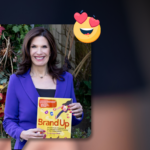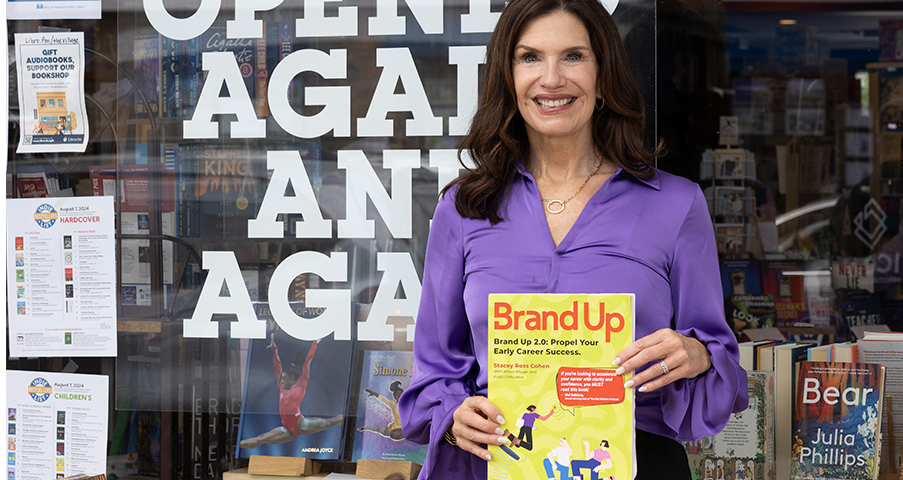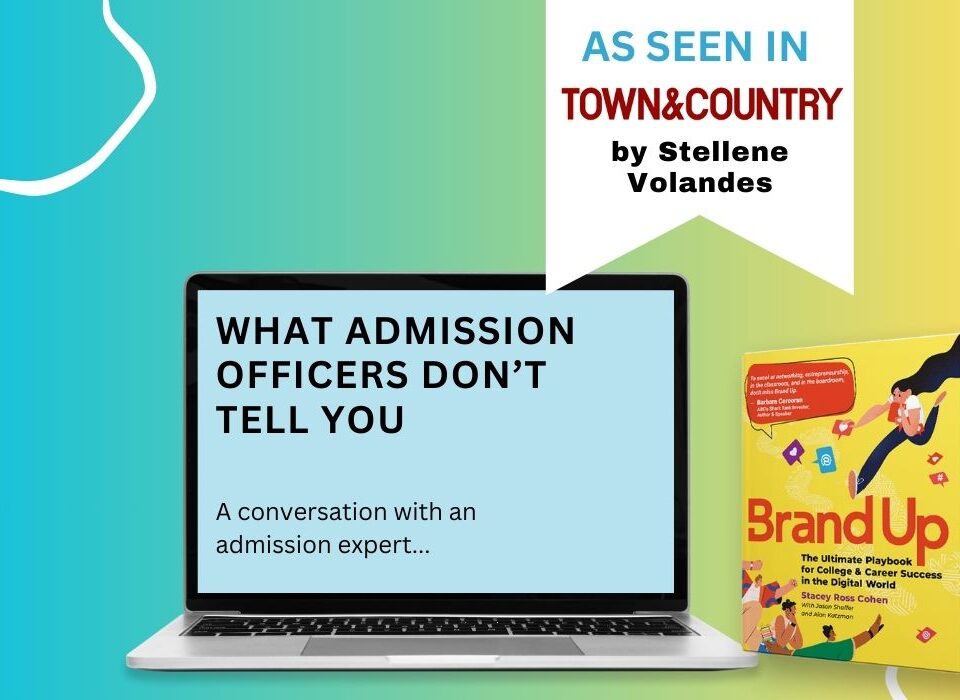
The Rise of Personal Branding and Digital Leadership
November 27, 2023
Identifying Your Superpowers: How to BrandUp with Stacey Ross Cohen
February 6, 2024Your brand is how people think of you--are you bolstering that brand professionally?

Expert Opinion By Natasha Miller, Founder & CEO of Entire Productions Jan 18, 2024
In an age where our digital footprints often precede us, understanding and shaping your personal brand has become more than a mere exercise--it's a cornerstone of professional success. Through an enlightening conversation with Stacey Ross Cohen, a leading figure in digital leadership and author of the best-seller Brand Up: The Ultimate Playbook for College & Career Success in the Digital World, let's explore the multifaceted aspects of personal branding.
What is a personal brand?
At its core, a personal brand is the distilled essence of who you are professionally. It's a blend of your unique strengths, passions, experiences, skills, and achievements--a narrative that presents the best version of yourself and compellingly answers why someone should choose you over others. "Personal branding is often misunderstood as a self-centered mantra: me, me, me," Ross Cohen clarifies. "But it's really about how your unique value proposition benefits others, how it sets you apart in your industry, and the trust and credibility it helps you build."
Article continues after sponsored content
For me, this means sharing with the world my expertise, vulnerability, and areas in which I can be helpful to others.
Current job market trends underscore the relevance of a personal brand. Recruiters now habitually scour social media profiles and online personas to identify promising candidates. "Personal branding and digital leadership have never been more essential," Ross Cohen states.
They're the tools that not only open doors to new opportunities, but also help individuals climb to the top of decision makers' lists, shape career paths, and leave an indelible mark on their financial futures. A well-crafted personal brand can propel your career forward, attract new clients, broaden your network, and forge fruitful partnerships. Moreover, it's an investment in personal growth and self-awareness, driving you to live out your purpose and reach your potential.
How to build a brand
Ross Cohen's approach to building a personal brand, which she calls "Personal Branding in 3D," encompasses three phases:
- Discover: This phase is about introspection and self-awareness. "Strong brands are built on the foundation of knowing oneself," Ross Cohen advises. Research indicates that self-aware individuals tend to achieve greater success academically and professionally. Identifying your passions, your unique superpowers, and what makes you a valuable investment is crucial. "Own your story," Ross Cohen urges.
I agree. And I'll also add in the self-awareness and strength in admitting my weaknesses so it balances out what might feel like bravado in general.
- Development: Here, the focus shifts to crafting a robust professional portfolio that showcases your unique talents, expertise, and personality. "Ensure that all your social media profiles are not only current but also synchronized," she suggests. The goal is to build a consistent and compelling narrative across all platforms, expanding your network strategically with connections that align with your objectives.
This is the perfect time to do an analysis and edit on your brand. I recently changed some of the language on my social media channels that doesn't represent my focus, and added a new headshot and banner to reflect what I look like now. Using the same headshot across all social media platforms is also helpful for viewers to recognize you.
- Delivery: Ross Cohen likens this stage to running your own news channel. "Utilize social media, public speaking, and media engagements as platforms to amplify your personal brand," she instructs. It's about actively sharing your expertise and thought leadership, thereby establishing your presence in the professional sphere.
What to avoid when building a brand
Ross Cohen also highlights common missteps to avoid:
Lack of direction: A clear strategic plan is paramount. Defining specific goals and understanding your target audience lays the groundwork for a focused personal branding effort. "Choose platforms where your audience is most active and concentrate your efforts there," she suggests.
For me, I've removed myself from Twitter/X, and only have a placeholder on Threads. I focus on Instagram, Facebook, and LinkedIn. It's what makes sense for my audience and me.
Imitation: Authenticity is non-negotiable. "Your personal brand should be as unique as you are," Ross Cohen notes. Faking it until you make it is a strategy fraught with risks and often leads to inauthentic experiences that can damage trust.
I love this challenge. Yes, I'm intrigued and inspired by other brands but it's encouraged me to dig deep and get creative on my personal, unique messaging.
Inconsistency: A consistent online image is key to building a solid and engaging brand. Fluctuating messages or behaviors can undermine the brand's integrity and erode trust.
Overpromotion: While it's essential to promote oneself, there's a fine line between healthy self-promotion and overwhelming your audience. "Focus on providing value and fostering relationships rather than a hard sell," Ross Cohen recommends.
I've heard the "rule" of give, give, give, give, ask, then repeat. I think that's a good ratio--four parts giving meaningful information, inspiration, and entertainment, and one part asking (or selling).
Value deficit: Ross Cohen's mantra, "Add value, not clutter," captures the essence of effective personal branding. Every post, every interaction should offer something beneficial to your audience.
Personal branding and the digital age
The ascent of personal brands is closely tied to the digital age's currency. Through various online platforms, individuals can amplify their voices, impart valuable insights, and connect with a broader audience. The rise of the gig economy and the entrepreneurial spirit has further elevated the importance of personal branding, with trust and authenticity becoming highly valued commodities.
Lastly, Ross Cohen connects personal branding to the concept of digital leadership. "Whether you're applying for college, preparing for a job interview, or even going on a date, chances are someone will look you up online to see who you are," she explains. With Google acting as the new résumé, having a robust and positive online presence is essential. Managing your digital footprint with care from an early age can significantly increase your success chances, from college admissions to securing that critical first job.
I've just started refining my personal brand identity to align with who I am this year. I have grown, learned a lot, and have let go of things that no longer represent me. You will find the "current me" on all channels by the end of January. And I'll adjust as I grow and change.
In a world where our online profiles are scrutinized as much as our résumés, taking the reins of your personal brand should be a priority.



